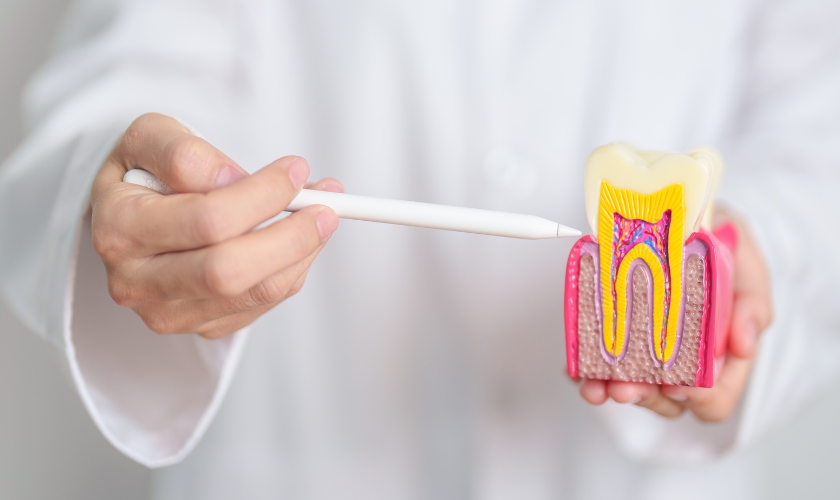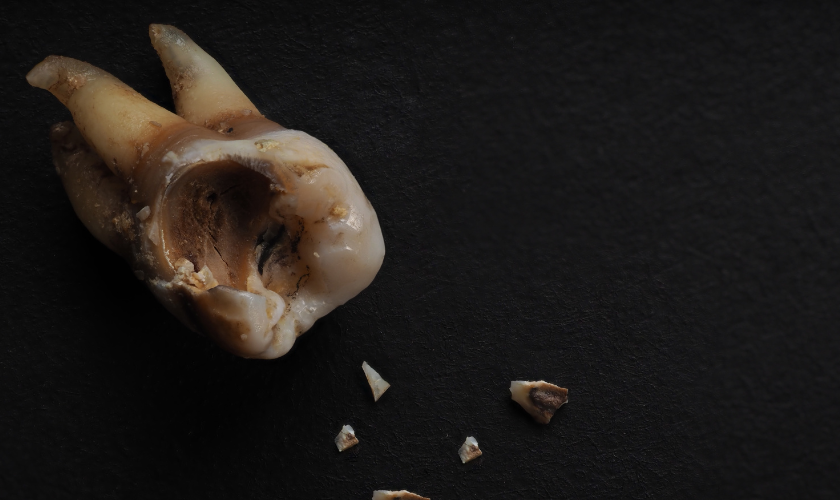Can A Tooth Survive Without A Nerve?

A common concern among patients is whether a tooth can survive without its nerve. This question often arises in the context of dental trauma, decay, or procedures like root canals. Understanding the role of the nerve and the implications of its absence is essential for maintaining oral health.
The nerve of a tooth, housed within the pulp chamber, plays a crucial role in its vitality. It provides sensory functions, such as feeling temperature changes and pain. When a tooth loses its nerve, it can remain functional, but several factors come into play regarding its long-term health.
The Anatomy of a Tooth
To grasp how a tooth can survive without a nerve, it’s vital to understand its structure. A tooth consists of several layers:
- Enamel: The hard, outer surface that protects the tooth.
- Dentin: The layer beneath the enamel is less dense but provides structure.
- Pulp: The innermost part containing nerves and blood vessels.
When a tooth is healthy, the nerve significantly signals pain and discomfort, alerting individuals to potential issues. However, if the nerve is damaged or infected, it may necessitate a root canal, where the pulp is removed, and the tooth is sealed.
Can a Tooth Live Without a Nerve?
Yes, a tooth can survive without its nerve, particularly after a root canal treatment. The infected or damaged pulp is removed during this procedure, and the tooth is cleaned, shaped, and sealed. After a root canal, the tooth may become non-vital, meaning it no longer has a nerve supply. However, it can still function normally when biting and chewing.
Once the nerve is removed, the tooth loses its sensitivity to temperature changes and pain. Patients may not feel discomfort from issues like decay or fractures, which can lead to further complications if not monitored. Regular dental check-ups become crucial for maintaining the health of a non-vital tooth.
The Importance of Regular Dental Check-ups
After a tooth has undergone a root canal, it is vital to maintain regular dental visits. Dentists will monitor the tooth for any signs of further decay or infection. Without the nerve, the tooth may not show symptoms until significant damage has occurred. This is why proactive dental care is essential for anyone with a non-vital tooth.
Risks of a Tooth Without a Nerve
While a tooth can survive without a nerve, it does come with certain risks. The lack of nerve sensation means that a person may not feel pain from issues like:
- Decay: Cavities can form without immediate detection.
- Fractures: A crack or break may go unnoticed until it causes significant damage.
- Infection: Without the nerve’s signaling, infections may develop unnoticed.
These risks highlight the importance of maintaining oral hygiene and scheduling regular dental check-ups. Dentists can detect issues before they escalate, ensuring the longevity of the tooth.
Emergency Situations
In cases where a tooth has lost its nerve due to trauma or infection, immediate dental care is crucial. Emergency dentistry plays a vital role in addressing these situations. If you experience a sudden toothache, swelling, or trauma, seeking urgent care can prevent further complications.
Emergency dentistry in Katy provides swift assistance for dental emergencies, ensuring you receive the care to address issues promptly. Whether it’s a knocked-out tooth or severe pain, professionals are available to help.
Treatment Options for Non-Vital Teeth
For teeth that have lost their nerve, several treatment options are available to maintain their functionality and appearance. These include:
- Root Canals: As mentioned, this procedure removes the nerve and seals the tooth.
- Crowns: After a root canal, a crown may be placed to restore the tooth’s structure and protect it from further damage.
- Implants: Dental implants may be an option in cases where the tooth cannot be saved. They provide a permanent solution by replacing the entire tooth structure.
The Role of Dental Hygiene
Maintaining excellent dental hygiene is crucial for the health of all teeth, especially those without nerves. Here are some tips:
- Brush Twice Daily: Use fluoride toothpaste to strengthen enamel and prevent decay.
- Floss Regularly: This helps remove food particles and plaque between teeth.
- Avoid Sugary Foods: Limit sugary snacks and beverages that can lead to cavities.
- Stay Hydrated: Drinking water helps wash away food particles and bacteria.
- Visit Your Dentist: Regular check-ups allow for early detection of potential issues.
Understanding the Long-Term Outlook
The long-term outlook for a tooth without a nerve largely depends on how well it is cared for after the nerve is removed. Many people live with non-vital teeth for years without issues, provided they maintain good oral hygiene and attend regular dental appointments.
While a tooth can survive without a nerve, it requires diligent care and monitoring. Emergency dentistry in Katy offers essential services for those facing dental crises, ensuring that patients receive the necessary treatment to maintain their oral health. By understanding the implications of a non-vital tooth and taking proactive steps, individuals can enjoy a healthy smile for years.







